|
When Onyx Path Publishing (OPP) announced the crowdfunding campaign to convert Calibre Comics’ Legendlore from four-color funny book to tabletop RPG, I was interested. Developer Steffie de Vaan reached out to talk about the project which resulted in this interview. Then, due to coronavirus, OPP decided to cancel the project. Steffie was gracious enough to answer a few follow up questions about how this pandemic impacted the game and how it will resurrect later this year. EGG EMBRY (EGG): Steffie, thanks for talking with me. At EN World, we spoke about your work on Vampire: The Masquerade 5e: Fall of London from Modiphius Entertainment. Now we’re talking about the Legendlore RPG Kickstarter from Onyx Path Publishing. For those that are not familiar with this setting, what is Legendlore and The Realm? STEFFIE DE VAAN (SDV): The Realm, and later Legendlore, is a comic initially published by Arrow Comics and later by Calibre Comics. They’re about a group of four friends who open an enchanted chest and find themselves teleported into the Realm, a fantasy world full of elves, dwarves, and at least one evil dragon in disguise. They go on adventures, some of them travel back to Earth, some don’t, and I think at least one dies. EGG: We started this interview before the decision to cancel this crowdfunding campaign was made. What drove that decision? SDV: It’s an uncertain time for everybody and the Kickstarter wasn’t getting the traffic we think it would normally do. We were on track to funding, but we felt Legendlore can and deserves to do better than it was. There’s also been people on our end understandably focused on other things and all in all we just felt it was better to postpone. EGG: What inspired Onyx Path Publishing to pick this Caliber Comics series for conversion to tabletop? SDV: The whole idea of “YOU travel to another world” is just so iconic. We see it time and again, in everything from Narnia to the old Dungeons and Dragons cartoon. And Legendlore is such a rich setting with great nations, villains, and a couple unique takes on people and monsters. EGG: Who is working on this project? What role are you taking? Are any of the creators from the original comics working on this? SDV: I’m the developer. I read the comics front to back (most if not all writers did) to distill the essence of Legendlore into a pitch and then an outline. We have some amazing writers on this book, so I’ll just list them all. Elizabeth Chaipraditkul, Jacqueline Penny Hart, Travis Legge, Megan Mackie, Ashley May, Katriel Paige, Roman Trevisanut, Vera Vartanian, and Ashley Warren. The people from Calibre were involved in the pitch and outline, as well as final approvals, but not in the actual writing. EGG: This RPG exists in a fantasy world and in “our” world. Will each player have two characters, one for “Earth” and one in the Realm? Will fantasy creatures be able to join the PCs back on our “Earth”? SDV: You get one character who can move back and forth (assuming you find a Crossing, which is a portal connecting Earth to the Realm). Steffie the human writer becomes Steffie the pixie Bard. And when I go back, I probably (but ultimately it depends on the group) become human again. Both are me though—same experiences, background, and personality. As to whether or not creatures from the Realm can come back with them, that depends on the DM. It’s never happened in the comics, but that doesn’t mean it can’t happen in your campaign. EGG: What makes D&D 5e the right system for this setting? SDV: I play D&D 5E and the system is just solid and easy to use. Given that Legendlore is a fantasy setting, it was a great fit. EGG: For those 5e fans that are on the fence about backing this, what’s your pitch to them? SDV: Remember that time when you statted yourself as a vampire, or an elf? (Because we ALL did it.) You can do that in Legendlore. In fact, the system is specifically designed to let you play fantasy you. We’ve got backgrounds for humans from activists to roleplaying fans. We also want everyone to feel at home in the Realm, Realmborn people come in all colors, genders, and orientations. Most importantly though, Legendlore gives you full player agency. You choose which parts of yourself you want to bring into the Realm, and which you want to drop. Seasonal allergies, anxiety, and glasses? Your choice whether those Cross with you, or if it’s magically changed. Same goes for any body dysphoria. Completely your choice. EGG: Correct me if I’m wrong, but continental Europe’s native comic format is the large album instead of the American-style floppy comics, right? Were The Realm and Legendlore, being indie American comics, readily available in Europe? Were you familiar with the series? SDV: We traditionally have big albums, yes. So, I am certain I’ve held a comic with the Legendlore letters/logo a solid two decades ago. But when I read the comics for this project the story was completely new to me. So either there are more fantasy comics using that lettering, or it’s been so long I don’t remember the content. EGG: The Legendlore RPG is going to come back and when it does, are there any thoughts about expanding some of the preview options? For example, OPP is great about sharing access to the rough draft of the game via backer-only updates. Are there any thoughts about doing the same, but with digital versions of the comics? Or other approaches to help spread the word about this setting? SDV: I am not sure we’re allowed to preview the comics themselves, because those are completely owned by our partners at Calibre. But we are planning actual plays of Legendlore which we expect will get people excited. EGG: With DC Comics’ The Last God making the jump from comic to D&D 5e supplement and Legendlore coming from OPP, is now the right time for publishers to look at comics as inspiration for their tabletop games? SDV: I love comics. If anyone wants to take a chance on hiring a new comic writer: contact me. The stories are so rich, and they’re such a good mix of show (with the visuals) and tell (with dialogue and captions). Plus most comics are serials so you have an entire background to pull from right there. But I also think we need to keep supporting new stories, as well as small companies that maybe don’t have the funds a DC Comics project does. So a bit of both, maybe. EGG: During these trying times, tabletop RPGs are a great way to connect with others and escape (and easy to do via many online platforms). Beyond this project, what else are you working on? SDV: I’m currently working on Exalted: Essence Edition and Scion: Saints and Monsters for Onyx Path Publishing, and Tiny Cthulhu for Gallant Knight Games. The Stargate RPG is coming to Kickstarter soon. Cat Evans and I are working on a Theros product for the DMs Guild, which is a lot of fun. And Liz (Elizabeth Chaipraditkul) and I are always writing new games for our Patreon. EGG: Thanks for talking with me. Where can fans learn more about the campaign, OPP, and follow your work? SDV: Here’s Legendlore and Onyx Path. And here’s me: Twitter, Wordpress, and Patreon. Egg Embry is a freelance tabletop roleplaying game journalist writing for EN World, Knights of the Dinner Table, RPG News, d20 Radio, the Tessera Guild, the Open Gaming Network, the AetherCon Convention Magazine, GAMA’s Around the Table, and more. His areas of focus are RPG crowdfunding projects and RPG reviews as well as interviews with a range of gaming professionals from freelancers to CEOs. Beyond journalism, he dabbles in freelance writing and producing gaming zines for the roleplaying zine-aissance. Picture Reference: https://www.kickstarter.com/projects/200664283/legendlore-rpg-setting-for-5th-edition-fantasy-roleplaying I’m not a big actual play fan. The only group I’ve been able to consistently listen to are my friends at Twin Cities By Night, and even then, some of the games don’t really catch me and keep me coming back for more. I think that’s about to change with this new Department of D&D (DoD&D) game put on by the Military Gaming League. For those who might not know, I’m a US Army veteran who served for about 7.5 years as a mechanic. While I didn’t love the military while I was Enlisted, I did love the people and this podcast fills a nostalgia niche while also being really entertaining.
I asked the folks at the Military Gaming League to provide some details on their show, which I’ve collected below. Anything in italics is a direct quote from the folks at DoD&D. 1) What’s the general theme of the podcast? The game is a satire of military stereotypes, but it leans into the feeling of camaraderie and unity that lives within the military. The story follows a group of real world military members who find themselves dropped into the Forgotten Realms, where they need to wrap their minds around what is happening while also taking action and saving the world. The in-game group includes 3 soldiers and 1 sailor who have banded together due to their strange circumstances and their shared backgrounds. 2) Why start an actual play series with a military focus? We saw how popular D&D was in the military community and wanted to create content that gives military and veterans a little more of a personal feel when listening to a D&D podcast while also allowing civilians to get a satirical glimpse of the military. We always strive to create content that gives a sense of family and belonging to service members and veterans. They really hit the money here. The first two episodes have quite a few in-jokes and military humor moments that really hit home for me. Even if you aren’t a veteran you’ll get most of the humor, but being a member of the veteran and military community made some of the moments really shine as hilarious. I laughed the entire time. 3) Who are the players and their characters? John, known as Ltvyrus, is an Army veteran who is playing PV2 Lance Wakeman, an Army medic who becomes a grave cleric. Jaydon, known as Hephaestus, is active duty Army who plays SPC Anthony Foster, a "radio dude" or communications who becomes a rogue. Heather, known as PinkChaos, is a Navy veteran who is playing PO1 Louise Ripley, a Navy missile tech who becomes a combat paladin. Drake, known as McQ2, is an active reservist in the Army who plays LT Todd Wise, a West Point graduate and infantry officer who becomes a ranger. (He’s a classic LT, and has rolled terribly every time he tries to use a compass or map) Mike "Devil" plays as the Deputy DM or Deputy Defense Master and Travis "ShamShield" is the DM (Defense Master). The players are already diving head first into classic D&D murder hobo behavior and the military style antics on top of that make things even funnier. 4) How can we get involved and support the Military Gaming League (MGL)? The best way to get involved from both the military and civilian side, is via our Patreon. We built our Patreon in such a way that individuals are not just subscribing to a tier, but rather joining an elite unit within MGL that we do special events with and have special rewards for. So those who join one of the 4 units will get both MGL rewards and DoD&D specific reward and it really helps us push out bigger and better content for everyone but also supports MGL and its mission to support service members and veterans through gaming. https://patreon.com/militarygamingleague If someone is US military or veteran, they can join MGL through our website at https://militarygamingleague.com. MGL as a whole touches more on the esports side of gaming however if we see benefit, we do initiatives such as DoD&D. 5) What is the future of the MGL? We see MGL growing into a powerhouse in the esports world that caters to a different type of gamer: military and veteran. We really want to showcase the skills that our players have but also to have a space where the military family exists in the gaming world. The easiest way that MGL grows and is able to put on these gaming events is by growing our playerbase, which means getting the word out to as many service members and vets as possible. Well, I for one am excited to see where this group goes and I’m not a big supporter of the Military Gaming League itself. I invite you to come join us in checking it out and supporting them doing what they do. With 20+ years of playing rpgs, Josh started with Mind's Eye Theater LARPs and loves the World of Darkness. He’s a serious advocate for inclusive gaming spaces, a father, and a graduate from the International Peace and Conflict Resolution graduate program at American University in Washington, D.C. Art courtesy of Military Gaming League Mental wounds need not be lethal, nor do they usually leave people a sputtering mess committed to a mental hospital. Instead they leave a sense of unease, tension, and underlying anxiety about the universe around us. What… if… what if that anxiety wasn’t completely unfounded? What if mental health trauma was a link to a universe or universes just outside our own? What if those universes wished to ultimately see our reality crushed and eliminated?
You’re half-way to understanding the goals and purposes of The Midnight World, by James Davey and Jim Beverly, which is currently on Kickstarter. Below are three reasons you should check out the game now. 1) Realistic Depictions of Mental Trauma Trauma is not the end for most people. Trauma is the beginning of stress and worry. Anxiety becomes ever present, a frustrating companion of worry and concern. When that trauma triggers deep seated fear and stress and all of that becomes a mountain of overwhelming mud to crawl through and attempt to wade into… The Midnight World gets mental health, anxiety, and PTSD right. It presents these real world stresses in a way that is easy to grasp and is non-sensationalist or foolish. It portrays mental illness is a realistic way to allow you to quickly understand how such things effect those who suffer through these challenges. At the same time, the game system is so well crafted it makes this concept one that is therapeutic to work through, without being overwhelming or stress inducing. This is a game, but one that offers an honest glimpse into ourselves. 2) Horror Done Right Like Mental Illness, horror is too easy to misrepresent in games. Horror is more than jump scares or vampires with bad accents. Horror is more than splatterpunk and gross out depictions of violence or any form. Horror is more personal than that. Horror is usually about a loss of control, a slipping away from the ability to take action and a sense of impending Dread. Until Midnight World the best game to simulate DREAD was named it. The Midnight World finds a similar mechanical way to increase dread, and the loss of control one finds as dread becomes all pervasive and overwhelming. 3) A World With Intriguing and Deep Concepts The Midnight World is a deeply psychological horror game. While it’s possible to play monster of the week with the setting, the base concept is that the Dread Beings who created your initial trauma are returning for some unknown reason. They might be returning to recruit you into their army. They may be trying to snuff you out before you become a larger pain in their rear ends. They may simply be drawn to your essence, that sense of trauma that echoes against the walls of their Corpse Universe prisons. The base concepts of the universe of the Midnight World are quantum mechanics based, with the idea there is a multiverse of possible realities. What it takes to allow these places to exist is a fascinating reach into sci-fi and horror. The idea that reality is multidimensional and great beasts are hiding in the folds of that reality waiting to devour us whole… it’s fantastic and offers a lot of opportunity for deep introspection and a push back against nihilism and cosmism. All of these are reasons I think you should back the Midnight World on Kickstarter now. With 20+ years of playing rpgs, Josh started with Mind's Eye Theater LARPs and loves the World of Darkness. He’s a serious advocate for inclusive gaming spaces, a father, and a graduate from the International Peace and Conflict Resolution graduate program at American University in Washington, D.C. Art courtesy of The Midnight World Since the boom of the tabletop roleplaying industry and kickstarter, we have been able to enjoy games from all over the world from a diverse amount of people. Unsurprisingly, the country with the most horrific creatures on the planet is producing some of the best tabletop RPGs. Due to distance, a lot of these amazing games aren't being showcased in America. So let's change that! Here are some of the best games being produced by Australian designers right now. 1) Relics: A Game of Angels The first stop on our road trip through Australia is Steve Darlington, creator of Relics and owner of Tin Star Games. You may have heard of Stever Dee, his moniker, as he has been part of the creation of Shadow of the Demon Lord and Vampire:The Requiem. Now his work is focused on a new creation! Relics: A Game of Angels is a game where you play (surprise!) angels who have come to earth to wage war against demons without the use of divine powers. The war has raged for centuries with no side gaining ground. The catalyst for this game is the withdrawing of God from the cosmic spotlight and vanishing from our perceived existence. What do these thousand year old angels do now that they no longer have guidance, a deity to fight for, or someone watching their back? These are some of the questions you will struggle with as you explore the world of Relics. It uses the tarot-based Fugue system originally created by James Wallis. Not only do the cards tell you about what happens, but also the card helps guide the scenario by the cues from the card’s meaning. If you are interested in a game where you can play ancient beings who played a part in creation, look no further. Furthermore, I cannot stress how amazing and helpful the Fugue system with the tarot deck is with pushing the story forward. The tarot deck offers so much storytelling inspiration for each action. Join the fight as you learn your place in this vast universe and make sure to pick up a copy of Relics. 2) Good Society: Jane Austen RPG Next on our trip through Australia are the wonderful designers from Storybrewers. Vee Hendro and Hayley Gordon have brought to life the vivid and romantic stories of Jane Austen through their game Good Society, which won Best Rules by The Indie Game Development Network in 2019. In Good Society, you adopt the personas of your favorite character types from Jane Austen novels and movies. You can be a wealthy debutante, a poor poet seeking love, write to your friends and family concerning the local gossip, or uncover scandal as you dance under crystal chandeliers. Whatever flights of fancy catch your eye within the pages of an Austen novel, you will find them in Good Society. The game uses cycles of play where you create scenes with other players, send letters, create rumors, and monologue. The conflict resolution is different than what the typical D&D player may be used to and uses a consent based token exchange. At the start of a cycle of play you have two tokens that allow you to to affect another character or accomplish an unlikely task. It is always a conversation; If you want to spread rumors of another player’s substance addiction, you must first enter negotiation with the other player. Everything is consent based and allows for a wonderful “yes and” and “yes but” style of play. Good Society was successfully funded via Kickstarter and a new expansion is coming out later this year. If you are looking for a narrative focused game with mechanics that do not get in the way, look no further than Good Society: A Jane Austen RPG. 3) Fragged Empire Our final destination brings us to Fragged Empire by Wade Dyer of Design Ministries. Fragged Empire is a post apocalyptic sci-fi game where you play one of the genetic creations of humanity. After a genocidal war, all the remaining species are trying to reclaim the society they once had. The base game has 4 non-human species that you can play, each one with its own special genetic purpose for their creation. The Corp, a species created in Humanity's image, were rejected by their creator and have now found their niche in controlling trade and finance. The Legion was a species created as soldiers for the war; now that the war is over, their species desperately tries to encourage their people to raise families and start farming. The mechanics are easy to understand yet provide a lot of tactical nuances that create exciting combat. You can control combat drones, perform multiple combat actions in one turn, and pilot space ships in epic space battles. The conflict resolution mechanics is a skill based system where you roll three six sided dice and add in your relevant skill bonus. If you describe the scene with a level of intensity and flair as the scene demands, the gamemaster can also award you a bonus. It doesn’t end there though. If you roll a six, you unlock a Strong Hit which allows you to perform special feats such as rerolling a d6. Character creation provides a diverse plethora of options in and out of combat, including unique Strong Hit abilities. There is so much flexibility and customization in the game, you can run any adventure. The universe is wide and vibrant with many planets that you can explore, as well as space stations where you can lose all your money through gambling. If you ever need a hand understanding the system, there are also helpful video tutorials online made by Dyer to help ease GMs and players into the game. Now that we have concluded our trip through some of Australia’s best tabletop roleplaying games I feel like I have done my part. Now your part is to seek these games out, spread the word, and go on adventures you can only dream of. Mitchell Wallace is a writer, professional gamemaster, and twitch director for Penny for a Tale. Mitchell playtests, runs, writes, and plays as many tabletop games as he can, and loves sharing them with the world via twitch, twitter, instagram, facebook, and pennyforatale.com Picture Reference: https://www.tinstargames.com/#/ We all want to level up our characters and smash the "big baddies", but quests and campaigns can become monotonous in the name of grinding for experience. Endless cookie-cutter dungeon crawls can suck the fun out of a great campaign and turn game night into more of an obligation. Check out these five ways to keep the magic in your campaign and help prevent the characters from turning into murder hobos! 1) Think Your Way Through A Puzzle Getting creative with puzzle encounters can break the cycle of beat the small baddies, beat the big baddie, get the treasure and experience points, rinse and repeat. Forcing your players to use critical thinking and their imaginations may be painful at first, but it can also bring new ideas to the campaign storyline. The puzzles don’t have to be on a high difficulty setting, sometimes setting up an easy or moderate puzzle can be just as fun to break the monotony. Try a small puzzle, like a mysterious room armed with coded locks that cannot be picked by your rogue. Or perhaps a larger puzzle of a strange cult that is controlling a village and needs to be dismantled via diplomacy rather than the sword. 2) Go Fetch! Fetch quests can seem trivial, but they’re also a fun way to push the story forward without a dungeon crawl. Have your players find a lost item that they must return. Then the reward can lead to a new epic quest, or an even more difficult fetch quest. The players might even decide to stay awhile and explore the new town or setting. Or the fetch might be an NPC (non-player character) or an enemy creature. Perhaps the princess has run away from her engagement and you must return her to her betrothed. Then there lies the choice of forcing her to marry, or allow her to escape. A new adventure awaits. 3) Introduce A New Threat Perhaps the main quest is ultimately defeating a particular big baddie and their lesser baddies along the way. However, that doesn’t mean a side quest isn’t in order. Create a new threat for your group to face. Maybe a town is being held hostage by a rogue warlock? Or perhaps a village is plagued by a rag tag army of bandits that assembled in the name of looting? Taking a detour from the main quest can be just what your campaign needs. 4) You Can’t Shake A Sword At The Plague An unusual route your campaign can take is dealing with a quarantined town. You can’t fight illness with weapons, or perhaps even magic. The villagers need saving all the same and riches may wait as your reward. A twist on the puzzle quest, figuring out the cause of an outbreak and finding a solution or a cure can put your group’s imaginations to the test. It can also allow your healers to shine as the key players for the quest. The cause of the disease could still be due to a baddie that needs to be slain, but the journey to that knowledge would be different from the typical dungeon crawl. 5) Make A New Friend Once a party is established, the dynamics of the group can become stuck in a rut, and gameplay can become quite predictable. A great way to shake things up is for the DM (Dungeon Master) to introduce a new NPC to the party. It could be temporary for a single quest, or could be a permanent fixture for the remainder of the campaign. Either way, it gives your party a new character to fight alongside and learn their quirks. Just be sure not to give your party a broken NPC either way – making them overpowered will make gameplay boring as it removes all the challenges, and making them weak and dumb will bog down your party and frustrate them. Meet somewhere in the middle with good advantages and weaknesses for the best gameplay. 6) Put The Game On Pause Sometimes the best way to rejuvenate the grand campaign is to put it on hold and have fun with a one-shot campaign. Pick a storyline that’s radically different than the quest you’ve been grinding on, and watch the spark return to your group as they battle their way through new monsters and challenges. A little fluff can go a long way to bring back the magic. It can even resemble the old dungeon crawl grind, but having a new storyline and objective can give your party the new angle they’ve been craving in their main campaign. While taking a new turn with your campaign can be fun, it's important to keep the balance of the overall goals of the campaign. Don’t just throw a crazy left turn into the mix, as that will only frustrate the party and confuse the campaign goals. Though if your group has a craving for plot twists, or straight up nonsense, perhaps they need a one-shot in a wonderland of sorts? Alice Liddell is an author, artist, and performer who loves bringing magic and fantasy to all aspects of her working and personal life. Whether it’s DnD with friends, or a round of Fable solo, Alice has always loved gaming of all kinds. You can find her work on her social media handles Facebook, or under littlalice06 on IG and Twitter. Image link: https://pxhere.com/en/photo/1021946 Erik King predicts that Canadian online casinos interest will double over the next five years3/3/2020 ttps://pixabay.com/photos/casino-sweepstakes-online-profit-4518183/ Gambling, in one form or another, has been a part of human history. Gambling itself is just a play of mathematical probabilities, but earning a livelihood by gambling is an art. This art is constantly appreciated and discussed. This is why some of the greatest movies to date were based on gambling. With the increase in popularity of the internet, an increase in online gambling is also observed. Online casinos provide you with the luxury of earning cash without having to leave the comfort of your house. Gambling alone strengthens the economy of a country. All developed countries make it to the top 10 gambling countries list. Canada, with a GDP of roughly $1800 billion, currently ranks at number 4. Erik King, an expert on online gambling, claims that the gambling interest in Canada will double in the next five years. Erik stepped into this industry in 2011. Eager to learn about online gambling, he worked with an online casino operator for a while. After getting a grip on the concepts of online gambling, he stepped into affiliate marketing and worked on several affiliate projects. His experience resulted in Zamsino, one of the most successful affiliate brands out there. Eric King is currently working as an affiliate marketer for Gambla.com, an affiliate casino company that started from Canada but is not starting to expand globally. The reasons behind an increased interest The gambling industry in Canada always had a consistent growth rate. The growth in revenue generated from gambling is mainly due to a shift towards online gambling. A huge population is interested in earning and making a livelihood out of gambling. The following factors come into play when it comes to gambling: Affiliate Marketing With the ease in accessibility of the internet, affiliate marketing has become very common. Affiliate programs benefit players as well as online casinos. Online casinos provide a hand full of cash in return for players. Players benefit from other players and the guidance provided by affiliate programs. This guidance makes the process of earning cash easier. Affiliate programs bring forth legitimate online casinos and free benefits such as free spins. Affiliate programs also provide a platform for the players, where they share viable information with other players, such as tricks and target casinos. Thus, this attributes to the inclination towards online gambling, as it is easier to develop a community there. Legalization Canada, after the US, is one of the few countries with legalized online gambling as well as legalized affiliate marketing. Online gambling was legalized in 2012, which caused rapid growth in online gambling. Newcomers still question whether online gambling is legal or not. As several illegal casinos still exist, players are always hesitant in investing without any assurance. Here, affiliate programs play a huge role. Affiliate programs connect legal casinos with players. Legalizing an act also normalizes its reputation in society. This factor also indicates the ease with which people accept legal acts. Thus, an increase in the growth was seen right after the legalization of online casinos. Technology and online cash Technology is the backbone of online gambling. Online gambling started from internet cafes and gigantic personal computers. But the change and advancement in technology have also changed the online gambling style. People now prefer their mobiles to personal computers and laptops. This has forced online casinos to introduce mobile optimised versions of their websites. Several online casinos have developed their android applications as well. This portrays ease for all players; thus, a huge number of players have entered this industry. Non-cash payments or cryptocurrencies such as the bitcoin are slowly taking over this industry. There is a significant amount of online bitcoin casinos in Canada. Bitcoins save players from the hassle of handling bank processes as they are saved in and used from one place only. This makes the entire process smooth. Thus, the value of bitcoin, along with the ease of transferring and winning, are major factors contributing to the growth of the online gambling sector. https://www.pxfuel.com/en/free-photo-xzvzr
Conclusion As Erik claims a future of growth in online gambling interests, Canada is expected to earn significant revenue from online gambling only. Ontario currently leads in earning economic benefits from online gambling. British Columbia, Quebec, and Alberta then come in the line. This growth is attributed to the public interest and investors and has also encouraged giant names from the investors' industry to enter into this industry, which promises future returns. |
All blog materials created and developed by the staff here at High Level Games Archives
April 2023
Categories
All
|
Proudly powered by Weebly
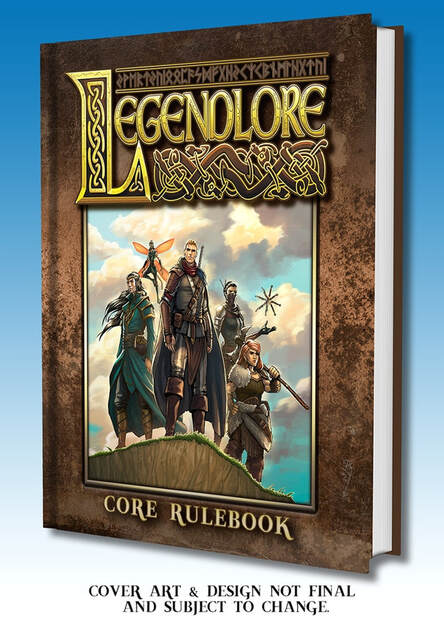
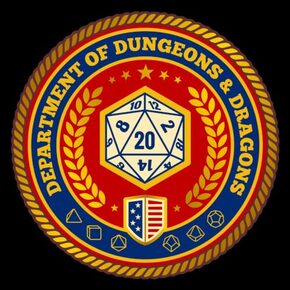
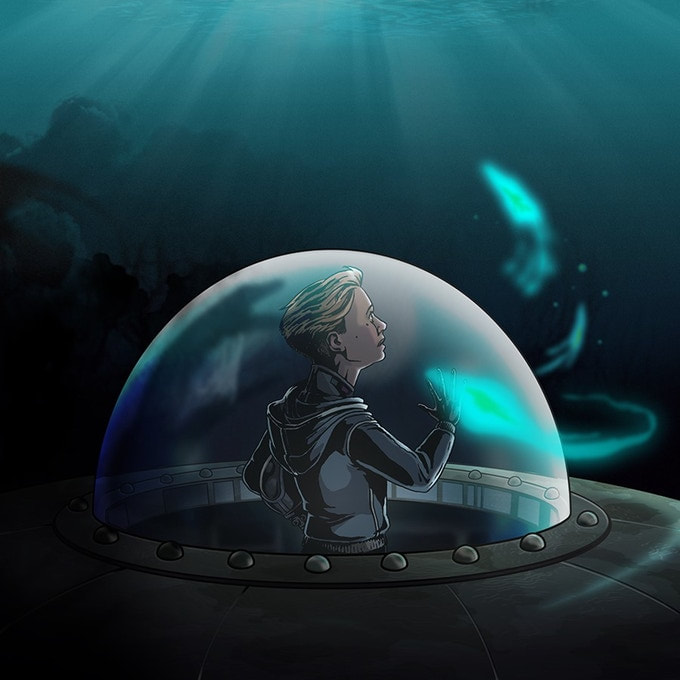
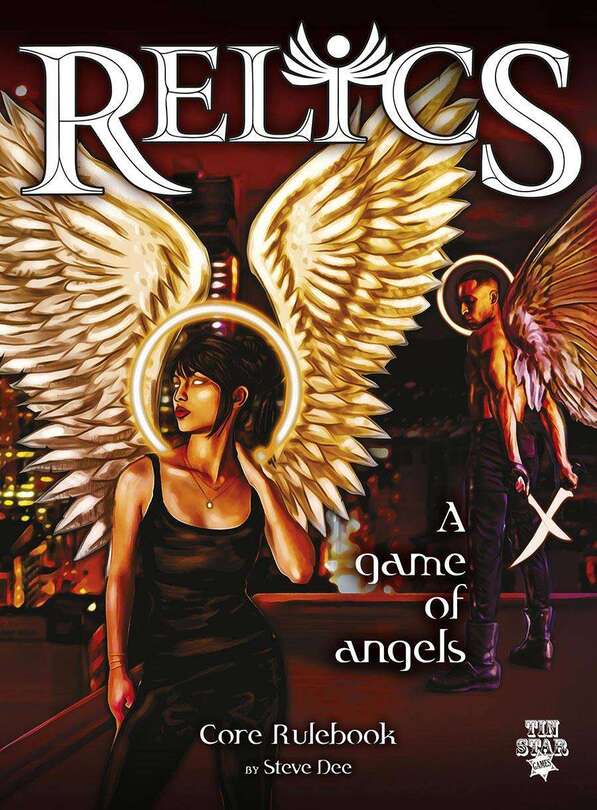
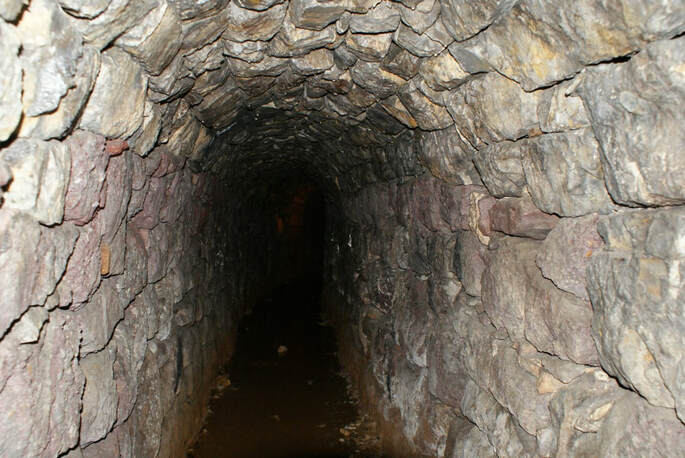



 RSS Feed
RSS Feed